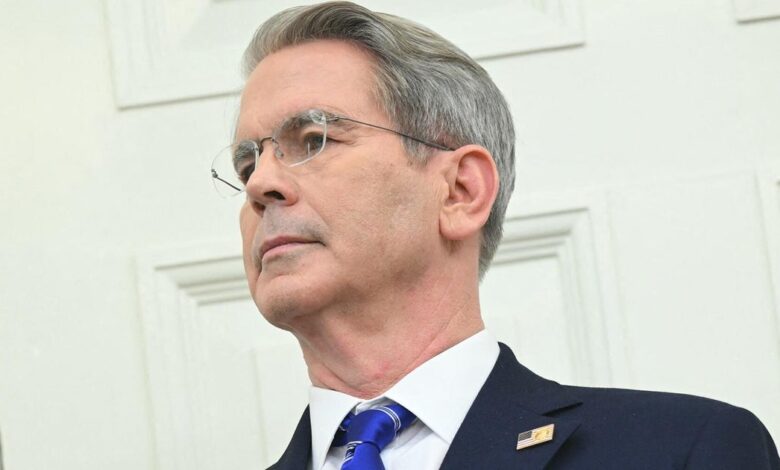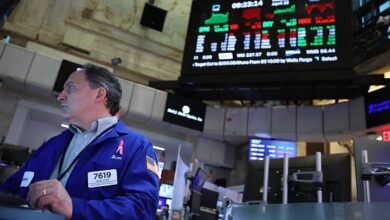Treasury chief Scott Bessent says U.S. has an “an opportunity for a big deal” with China

Treasury Secretary Scott Bessent recently addressed the Institute of International Finance in Washington, D.C., shedding light on the potential for a significant trade deal between the United States and China. His remarks hinted at the possibility of easing the intense tariff war that has been ongoing between the two economic powerhouses.
Bessent emphasized the Trump administration’s desire to see a shift in the U.S. economy towards more manufacturing, while also urging China to move away from its current export-led manufacturing growth model. He highlighted the need for China to undergo a transformation, acknowledging that everyone recognizes the necessity for change. Bessent stressed the importance of assisting China in this transition, as it is crucial for both countries to achieve economic rebalancing.
The Treasury Secretary criticized Beijing’s export-reliant economic strategy, labeling it as unsustainable and detrimental not only to China but also to the global economy. Despite these criticisms, Bessent reiterated that the administration’s “America First” policy does not imply isolationism, signaling a potential thaw in trade tensions. Reports surfaced suggesting that the Trump administration is contemplating reducing tariffs on Chinese imports as a means to de-escalate the trade war, leading to a surge in the stock market.
China recently retaliated by raising tariffs on U.S. goods to match the level of tariffs imposed by President Trump, further heightening trade tensions. Bessent reiterated the administration’s stance on reforming China’s export-based economy, emphasizing the need for sustainable economic models that benefit all parties involved.
In addition to trade discussions, Bessent also addressed the International Monetary Fund (IMF) and World Bank, calling for a reevaluation of their roles and missions. He criticized the IMF for lending practices that do not prioritize economic stability and growth, suggesting a shift towards more impactful measures. Similarly, Bessent urged the World Bank to refrain from endorsing superficial reforms and focus on tangible commitments to change.
As the trade landscape continues to evolve, Bessent’s remarks underscore the complex dynamics at play in the global economy. The potential for a trade deal between the U.S. and China represents a significant opportunity for both countries to recalibrate their economic strategies and foster mutually beneficial relationships. As discussions progress, it remains essential for policymakers to prioritize sustainable growth and stability in the international financial system.





